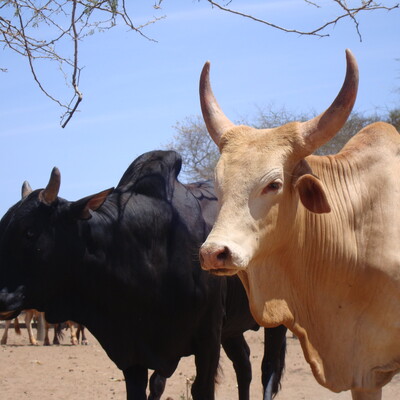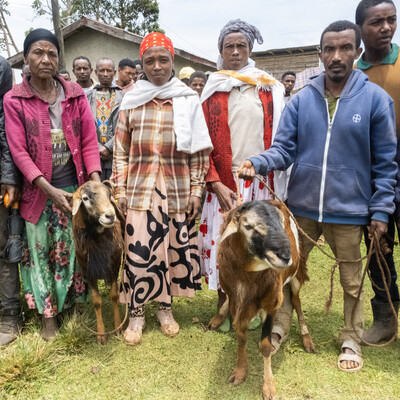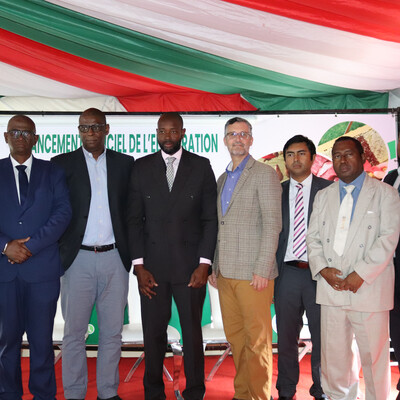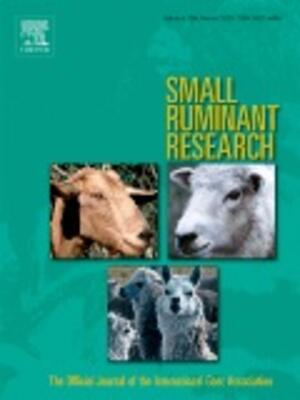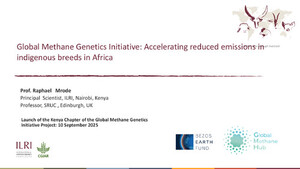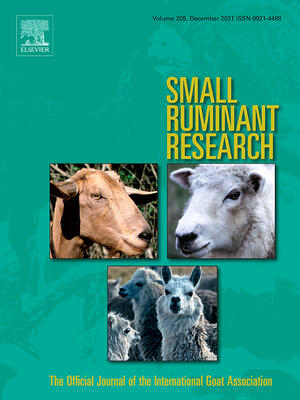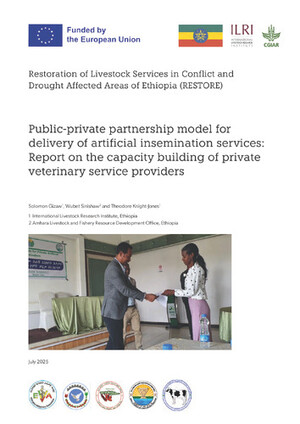
SAPLING initiative’s stakeholder consultation proposes priority activities for northwest Vietnam

Livestock is an essential income source for many small-scale farmers in Northwest Vietnam, who may own only a few animals (photo credit: ILRI)
In the local Thai dialect in Vietnam’s Northwest Region ‘Chan-henh’ means ‘good and better’. It is also the short name of the CGIAR Initiative on Sustainable Animal Productivity for Livelihoods, Nutrition and Gender Inclusion (SAPLING) that is working in the country.
In early October this year, a stakeholder engagement meeting was held in Mai Son District, Son La Province to consult Vietnamese partners and farmers on the planned interventions of the initiative.
Attending the meeting were leaders of the Department of Agriculture and Rural Development (DARD) of Son La, the Sub-department of Animal Health and Fisheries of Son La, the National Institute of Animal Sciences (NIAS), the National Institute of Veterinary Research (NIVR), the Alliance Bioversity-CIAT (ABC) and the International Livestock Research Institute (ILRI). Commune and village leaders and community members from four communes of Chieng Chung, Chieng Luong, Hat Lot and Co Noi in the district and the Northwest Safe Food Company also joined the event.
Participants at the consultation meeting (photo credit: ILRI/Chi Nguyen).
Under the Chan-henh project, the research team will develop and implement health, genetics, feeds and forages, and value chain approaches to stimulate system transformation–livelihoods, environment, equity, nutrition and market access to make the livestock sector in northwest Vietnam more productive, resilient, equitable and sustainable.
In Mai Son District – the targeted site for the initiative– farmers keep 11,000 buffalo, 30,000 cattle, 83,000 pigs and 1.1 million poultry. ‘Livestock production has changed positively, but there are still many shortcomings. Livestock production is fragmented, not meeting the need and potential for development, is unable to cope with extreme weather, conditions, lacks feeds and forages in the dry season and farmers have limited access to technologies,’ said Cam Thi Phong, deputy director, DARD Son La when opening the meeting. She proposed that Chan-henh project should support the provincial livestock sector to overcome the afore-mentioned challenges for improved livelihoods of the local people.
The research team presented and discussed with local authorities and farmers the objectives, methods and proposed interventions of the initiative. Participants shared their feedback and views on the planned intervention packages and reflected on how these are aligned with their priorities.
Five complementary components of the project were presented including:
- Technologies and practices for sustainable livestock productivity, which will develop, adapt and test new and existing productivity- and resilience-enhancing, low-emissions, scalable technologies and practices across the three main pillars of livestock productivity: improved feeds, animal health products and genetics.
- Innovations and practices for safe consumption of livestock-derived foods as part of diverse diets, which will co-create innovative models and approaches for social and behaviour change communication, and test and evaluate approaches for incentivizing market actors to enhance the supply of safe, nutritious and affordable livestock-derived foods.
- Sustainable livestock productivity for gender equity and social inclusion, which will understand constraints and opportunities, identify best-bet entry points, and develop tools to measure progress.
- Competitive and inclusive livestock value chains, which will generate evidence on institutional arrangements and technical interventions to transition towards more profitable, inclusive and sustainable livestock value chains.
- Evidence, decisions and scaling which will generate and consolidate evidence, models and tools to support public and private decision-making for a sustainable and inclusive livestock sector.
Many of the SAPLING interventions will built upon the work of the ‘Livestock-led interventions towards equitable livelihoods and improved environment in the Northwest Highlands of Vietnam’, or Li-chan project (meaning ‘beautiful’ in Thai dialect), which was implemented in 2019-2021 in the communes of Chieng Chung and Chieng Luong.
Researchers and participants, especially the local farmers, jointly agreed upon the initiative’s workplan, which will tentatively be implemented from the end of 2022 to 2024. They called for further capacity development in breeding improvement and animal health management in which gender elements are integrated to ensure equal participation of ethnic women throughout the project cycle.
Cam Thi Khay, vice president of the People’s Committee of Mai Son District, called for the project to engage extension staff at the grassroots level who can be instrumental in scaling up the interventions in the community.
‘Consulting with local authorities and targeted farmers is helping us identify the constraints and opportunities for research and development in livestock within the targeted communities to make timely adjustments to fit the local context before the project starts,’ said Fred Unger, ILRI regional representative in East and Southeast Asia.
After the meeting, the research team visited livestock-keeping households in two new communes of Co Noi and Hat Lot to better understand the livestock systems in the new sites.

The research team visit a livestock keeping household in Hat Lot Commune (photo credit: ILRI/Trang Le).
SAPLING is one of 32 CGIAR initiatives designed to achieve a world with sustainable and resilient food, land and water systems to deliver more diverse, healthy, safe, sufficient and affordable diets; and ensure improved livelihoods and greater social equality, within planetary and regional environmental boundaries. In Vietnam, one of its seven focus countries (others are Ethiopia, Kenya, Mali, Nepal, Tanzania and Uganda), the initiative is coordinated by ILRI and ABC.
Read related news:
Engaging key stakeholders towards a CGIAR sustainable animal productivity initiative in Vietnam






